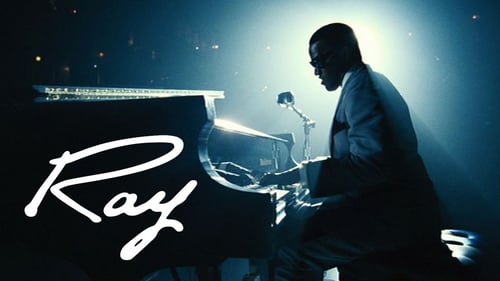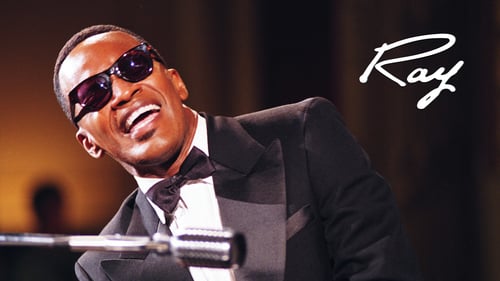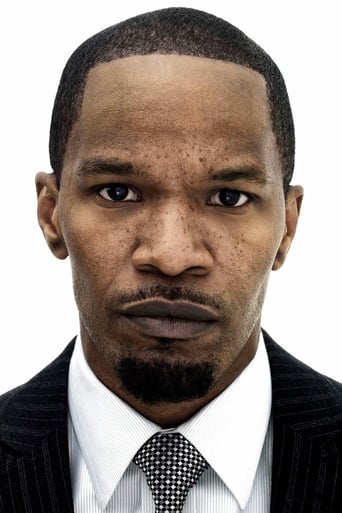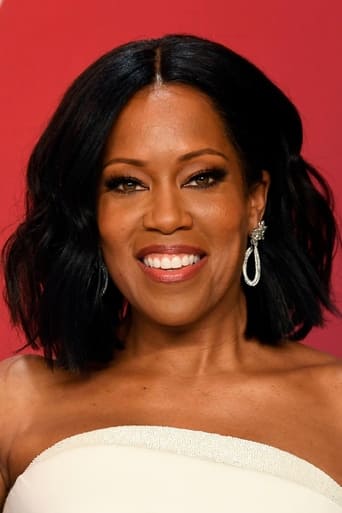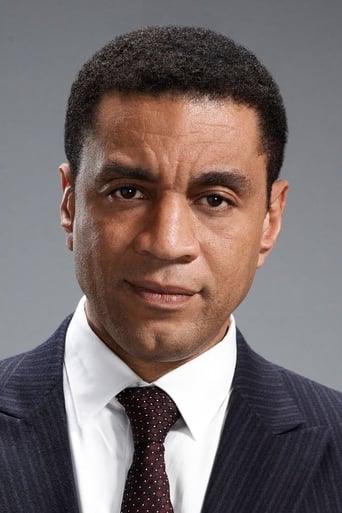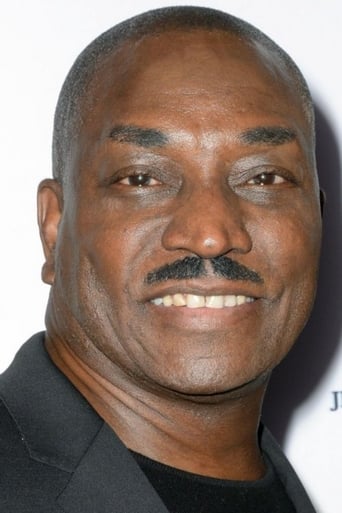Hellen
I like the storyline of this show,it attract me so much
Huievest
Instead, you get a movie that's enjoyable enough, but leaves you feeling like it could have been much, much more.
Jenna Walter
The film may be flawed, but its message is not.
Cheryl
A clunky actioner with a handful of cool moments.
merelyaninnuendo
RayThe structure of the feature is similar to any other biography, so there is no element of surprise and addition to that, another major conundrum is the overlong runtime, ticking for more than 150 minutes. James L. White's screenplay is smart yet somehow fails to keep the audience engaged into it despite of having some high pitched dramatic sequences. Taylor Hackford has done an amazing work on executing the script and the characters onto the screen and create something colossal out of it with the help of amazing cinematography and fine editing. The performance is where the feature steals the show and the heart of it lies with Jamie Foxx who is supported by a great cast like Karee Washington and Regina King. Ray is a character driven feature that shouts out the affection that makers had for Ray which is what helps it work like a charm.
fu-avci
Ray is a biographical movie and focusing parts of Ray Charles' private life and music career. Ray Charles is a legendary musician, as many people know. He tried to integrate different kinds of music and helped to social change in American culture. He was lost his sight when he was a kid because of a disease, and he had to learn to live without seeing when his childhood. The movie built two main images. One of them is his little brother and other is his mother. His brother symbolized his fears because he died when he was a child and Ray couldn't save him and blame himself because of his death. And the mother image is symbolized his strong parts, cause his mother was the one of the supporter and teacher about the new life without seeing. Actually, I don't want to give too much specific information about the movie, I want to talk about being a black blind person in 1950's USA. It is important because racism had strong effects on all over the country those years. People were not equal and the black people were discriminated because of their skin colors. So, Ray Charles was the black and blind people in such an environment. Also, the regulations for disabled people were not developed properly, and there was not enough consciousness about being disabled. Therefore, he had to rely on only his remained senses to continue his life. It should be really hard to get used a life without seeing, especially if you know the better option.
ElMaruecan82
Taylor Hackford's "Ray" covers all the usual ingredients of the musical biopic: the miserable childhood, the 'revelation', the rise to success and its deal of collateral damages from addictions to marital troubles, mental breakdowns, business stuff and so on and so forth, the whole thing wrapped up in frenetic headline-driven editing and a terrific soundtrack. "Ray" features the whole package and yet it works. It works because music has that little edge over the other genres when they bend with the biography picture: the singer is never the same, the music too. And when the central figure happens to be one of the most beloved and iconic singers of the last century, you've already won the emotional involvement of the average movie lover.I'm not generally stingy on superlatives but "Ray" is one of the greatest music-movie of all time because it met with the most hit-or-miss requirement: the casting. Jamie Foxx doesn't play nor does he impersonate Ray Charles, he IS Ray Charles, apart from the singing voice (that could only belong to Ray), he's got the looks, the mimics, it strikes how Foxx played Ray Charles to the core, to the tiniest details such as shoulders contraction, that smile you never can tell when it's genuine, defensive or nervous, that stuttering, it is really digging very deeply and I was impressed by the level of dedication that allowed Foxx to channel Ray. Foxx was a singer and even a piano player, maybe the hardest part was over, but playing a piano without seeing and making it feel genuine and believable needed training, patience and one hell of a dedication.I could go on and on about the acting, Foxx' Oscar was overdue and his work was of a magnitude that matched Ray's legacy. You need believable acting to believe in the miracle that allowed a blind man to become a music legend, and not make it as the usual story of the man overcoming the handicap but rather using it as a defining part of him, for better or worse. Blindness heightened Ray's other perceptions, such as hearing, feeling, touching. Maybe that extra-sensitivity forged his capability to hear the pulses of the human soul like no one, to touch the hearts of people or make them pound to the tempo of his own spirit, to believe that the gospel could mix with rhythm and blues, pioneering the soul music while venturing in so many various styles, you can't really classify Ray Charles. He was blind maybe, but he could see what we couldn't, and there's no magical 'John Coffey' behind it, it's just the school of life, and a mother who taught him everything the hard way.The screenplay makes no secret that it is Ray Charles' blindness that transcended him while being his heaviest burden. Charles became blind after a traumatic childhood episode, having witnessed his brother drowning without even trying to save him, frozen by fear. The vision was so upsetting that his eyes couldn't sustain it, but his mother who raised him in poverty taught him to never let anyone believe he was crippled. Charles' strength was that he didn't see himself as a colored man in racist America but as a blind man surrounded by color-blind wolves. That's an insight people with vision don't get, Charles learned from the start not to trust anyone. He wants success, he wants money, he's not just some 'artist' and that's what I like about the film, it doesn't sugarcoat the image of the singer, he went to the best offer and could leave or fire his 'friends'. Ray meant business.But there's a catch, Ray was also a troubled man who lived in the dark and couldn't lead his way to success without a few ethical shortcuts. He married a good woman Della Bea (Kerry Washington) who gave him children but she knew he couldn't be the man of one woman. Charles was addicted to women like heroin and the film mostly focuses with his romances with Mary Ann Fisher and Margie Hendricks (Regina King) and you can see that his vices were always making up for that darkness, lusting for pleasures that can do without vision, getting high or feeling a body, or something in his body. Charles doesn't lie to himself, he believes in God but has some records to settle with him and only near the end that he comes to term after his rehab, so the film can conclude.Indeed, there's not much room for heavy dramatization after the 60's, except for the rehabilitation in Georgia, the state he had in his mind, inspiring its very anthem. At the end, "Ray" is the portrait of a musical genius who happened to be a womanizer, a drug-addict, a businessman, and all these facets of his personality that we explore through the film allow us to understand the price of success, you can't just get to the top with millions of fans without disappointing a few who love you. And you can't sing the Gospels without flirting with the Devil because letting all the repressed feelings explodes is the best way to put "art" in cathartic. And while the trope of a banal situation ending up inspiring a hit song is very familiar, in the case of "Hit the Road Jack" and "What'd I say", you're so entertained by the music that you accept these artistic licenses.And speaking of the songs, I just can't resist to that opening theme of "Night time is the Right Time" that fuses that perfect mix of sleaziness, sensuality and a little something that prepares you to feel a song before dancing to it. Ray Charles was blind, he was in perpetual night time but, as the song say, that night time was the right time to reinvent music.
charlywiles
The quote above references one of my favorite scenes from this marvelous film. It only lasts a couple of minutes, but encapsulates the tough-love that young Ray Charles' mother, played by Sharon Warren, uses to teach her sightless little boy how to use his other senses, including his hearing, to cope and to get around on his own. It is a heartbreakingly beautiful scene and is a fine example of how excellent direction, acting, cinematography, screen writing, editing and all technical aspects can come together to make a quality film.This project was obviously a labor of love for director Taylor Hackford. His respect and admiration for his subject, rhythm-and-blues legend Ray Charles, is evident in every frame of this wonderfully insightful and entertaining musical biography.That this film works splendidly is also a tribute to the talents and dedication of Jamie Foxx in the title role. He gives a magnificent performance and so thoroughly inhabits the character of Charles, that one forgets that one is watching a performance and is made to believe that that is Ray Charles himself up on the screen. It that isn't fine acting, I don't know what is. The supporting cast is also terrific and is highlighted by the amazing work of the actresses who portray the three key women in Charles' life. The are Regina King as his fiery lead singer and mistress, Kerry Washington as his strong, loving and loyal wife, and Sharon Warren (in her film debut!) as his tough-love mother who was more instrumental than anybody else in helping him overcome his disability.The look of the film is unique and striking, with terrific photography, period footage and visual effects utilized to make this film just as special to look at as it is to listen to. The flashback scenes to Ray's youth are well-done and accentuate plot points perfectly.The picture is chock-full of Charles' music and not only demonstrates his prolific and varied output, but the fantastic songs themselves are brilliantly utilized to drive the story forward. A fine example is scene in which the song "What Kind of Man Are You" is used to demonstrate the jealous rivalry between two of Ray's singers played by Aunjanue Ellis and Regina King. The fantastic "What'd I Say" number is also a wonderful scene and perfectly demonstrates how Charles' groundbreaking musical style revolutionized American music in the 1960's. The music is really the film's main star and contains many of Ray's hits as well as his not-so-well-known tunes. They also include the gospel-infused "I Got a Woman," the passionate "Mary-Ann," the rockin' "Hit the Road, Jack," the soulful "Unchain My Heart," and the sublimely beautiful "Georgia on My Mind."Charles's drug addiction is not glossed over, but instead is front-and-center. We experience, and perhaps understand, his need to get high as well as his intense struggle to overcome his insidious heroin addiction.The film is expertly made and is perfectly evocative of time and place. It is not only an outstanding musical-biography, but one of the great musical films of all time.






